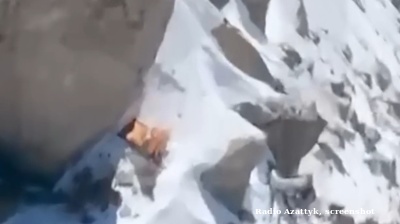The government of Uzbekistan has issued a formal response disputing a recent opinion by the United Nations Human Rights Council’s Working Group on Arbitrary Detention regarding the criminal prosecution of Gulnara Karimova, the imprisoned daughter of former president Islam Karimov.
Tashkent raised concerns over what it described as a “one-sided” and “subjective” assessment by the Working Group, which it said relied exclusively on information submitted by a single source and failed to consider the government’s official response.
“The Working Group’s opinion was based on one-sided, subjective information provided by the Source, and that the Government of Uzbekistan provided an official response on this issue, but it was not taken into account due to official procedural deadlines,” the statement said. “Such an approach undermines the principles of objectivity and impartiality to which UN bodies are required to adhere.” Karimova, once a prominent figure in Uzbek business and politics, has faced multiple convictions on charges including tax evasion, money laundering, fraud and embezzlement.
Karimova has been in custody since 2014 and is currently serving a prison sentence. As bne IntelliNews reported, she has also been linked to several cases of large-scale corruption while her father was alive. Amongst those, in March 2023, a Freedom For Eurasia report found that Karimova spent $240mn obtained from bribery and corruption on properties from London to Hong Kong. In August the same year, Britain’s Serious Fraud Office confiscated luxury properties worth $25.5mn that belonged to Karimova
The Uzbek government stressed that “all criminal cases against G. Karimova were initiated and considered in strict compliance with the norms of criminal and criminal procedural legislation,” and in accordance with its international obligations, including the International Covenant on Civil and Political Rights.
“The right to a defence and the right to a fair trial were ensured at all stages of the criminal proceedings,” the government said. “G. Karimova had the right to appeal to independently selected or duly appointed defence lawyers.” It further stated that court rulings were issued by competent judicial bodies on the basis of “sufficient evidence confirming the commission of serious and especially serious crimes,” and rejected allegations of political motivation behind the prosecutions.
“All actions of law enforcement and judicial bodies were based solely on legal and evidentiary aspects… and did not affect [her] legitimate economic activities and/or political position or views,” the statement read.
Claims of arbitrary arrest, prolonged house arrest, or informal court proceedings — such as the widely reported “trial in the kitchen” — were described as “unfounded.” According to the government, “all procedural actions and court hearings were conducted in full compliance with the norms and requirements of procedural legislation.” Tashkent also highlighted a 2022 agreement with the Swiss Confederation under which assets previously tied to Karimova and returned to Uzbekistan are being allocated through the Vision 2030 Fund.
The fund supports the country’s reform agenda and contributes to the UN Sustainable Development Goals. It is managed via the UN’s Multilateral Partnership Trust Fund mechanism.
“Uzbekistan is always open to dialogue and international cooperation based on the principles of mutual respect, compliance with international law, and the elimination of double standards,” the statement added.
Gulnara Karimova was initially sentenced to five years of restricted freedom, which was later converted to a prison term in 2019.
In 2020, she received an additional sentence of 13 years and four months for embezzling state assets, conducting deals detrimental to Uzbekistan’s national interests, and large-scale extortion of property.
She is currently serving her sentence in a prison close to the capital Tashkent where she is reportedly enjoying “VIP treatment.”
News

Russia orders emergency operation in race to save mountaineer trapped on Kyrgyzstan’s highest peak
Top official responds to desperate appeal from climber Natalia Nagovitsyna’s son who believes she is still alive.
_1756222537.jpg)
End of Bolivia's leftist era leaves Chinese and Russian lithium deals in limbo
Bolivia’s October presidential run-off has become a contest not only between two political traditions but also over the management of the country’s vast but underdeveloped lithium resources.

UPDATED: Kosovo gets parliament speaker but months-long political stalemate persists
Prolonged political deadlock had prevented Kosovo's assembly from functioning and blocked the formation of new state institutions since the February general election.

Turkey’s “fast lane” transport minister hit with motorway speeding ticket
Abdulkadir Uraloglu posted video of himself driving at 225 km/h, with clip set to folk music and Erdogan speeches on infrastructure.



_Cropped_1756210594.jpg)
